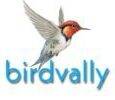Cockatoos are known for their vibrant personalities and expressive behaviors, making them a popular choice among bird enthusiasts. One of the most common and intriguing behaviors exhibited by cockatoos is head bobbing. But what does it mean when a cockatoo bobs its head? This article delves into the various reasons behind this behavior and what it signifies about your feathered friend.
1. Communication and Social Interaction
Head bobbing is a primary form of communication among cockatoos. In the wild, it helps them interact with their flock members. When a cockatoo bobs its head at you or another bird, it might be attempting to establish social bonds, convey excitement, or even show off. This behavior is especially common in social settings where the bird feels comfortable and secure.
2. Seeking Attention
Cockatoos are highly social creatures and often crave interaction with their human companions. Head bobbing can be a way for them to get your attention. If you notice your cockatoo bobbing its head when you enter the room or when it’s near you, it could be a sign that it wants to engage, play, or simply be acknowledged.
3. Displaying Excitement
Excitement is another common reason behind head bobbing. Cockatoos may exhibit this behavior when they are happy or stimulated. For instance, the sight of a favorite toy, the anticipation of a treat, or even the prospect of some fun playtime can trigger this enthusiastic head movement.
4. Courtship and Mating Behavior
In the context of mating, head bobbing plays a significant role. Male cockatoos, in particular, use this behavior as part of their courtship display to attract females. The bobbing is often accompanied by other displays, such as wing flapping, vocalizations, and a fluffed-up crest. If you have a pair of cockatoos, you might observe this behavior more frequently during breeding season.
5. Sign of Hunger
Cockatoos might also bob their heads when they are hungry or anticipating food. This behavior is common in younger birds or chicks that are still being hand-fed. They bob their heads vigorously to signal their hunger to their parents or caregivers.
6. Expressing Discomfort or Frustration
While head bobbing is generally a positive behavior, it can sometimes indicate discomfort or frustration. If a cockatoo is bobbing its head excessively or in conjunction with other signs of distress (such as feather plucking or vocalizing loudly), it may be experiencing stress, boredom, or illness. In such cases, it’s crucial to observe other aspects of the bird’s behavior and environment to address any underlying issues.
7. Mimicking Human Behavior
Cockatoos are intelligent birds capable of mimicking human actions. If your cockatoo has seen you nodding or moving your head, it might start to imitate this movement. This mimicry is a testament to their cognitive abilities and their desire to bond with their human companions.
Conclusion
Head bobbing in cockatoos is a multifaceted behavior with various meanings, ranging from social interaction and excitement to hunger and mimicry. Understanding the context and accompanying signs is essential to interpreting what your cockatoo is trying to convey. By paying attention to your bird’s body language and behavior patterns, you can ensure a happy and healthy relationship with your feathered friend.
